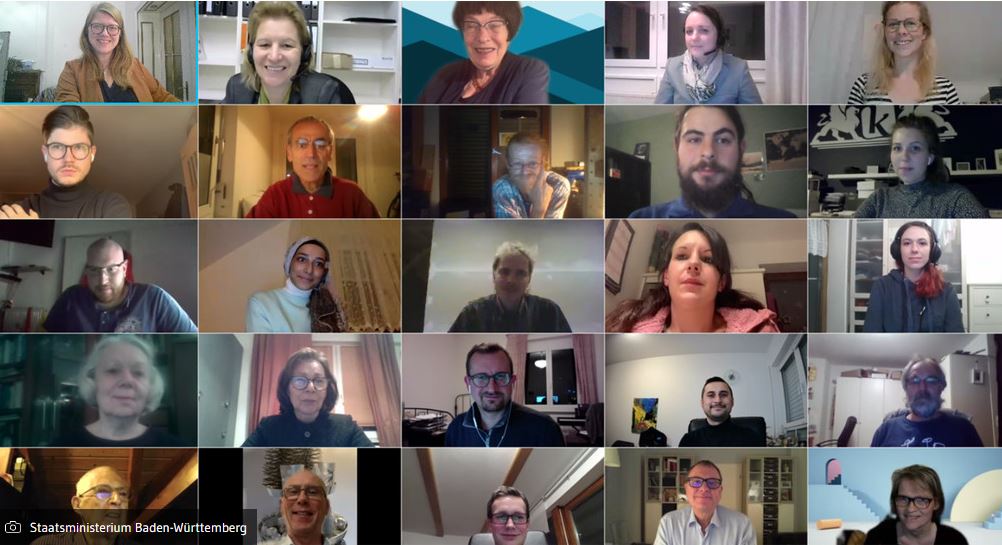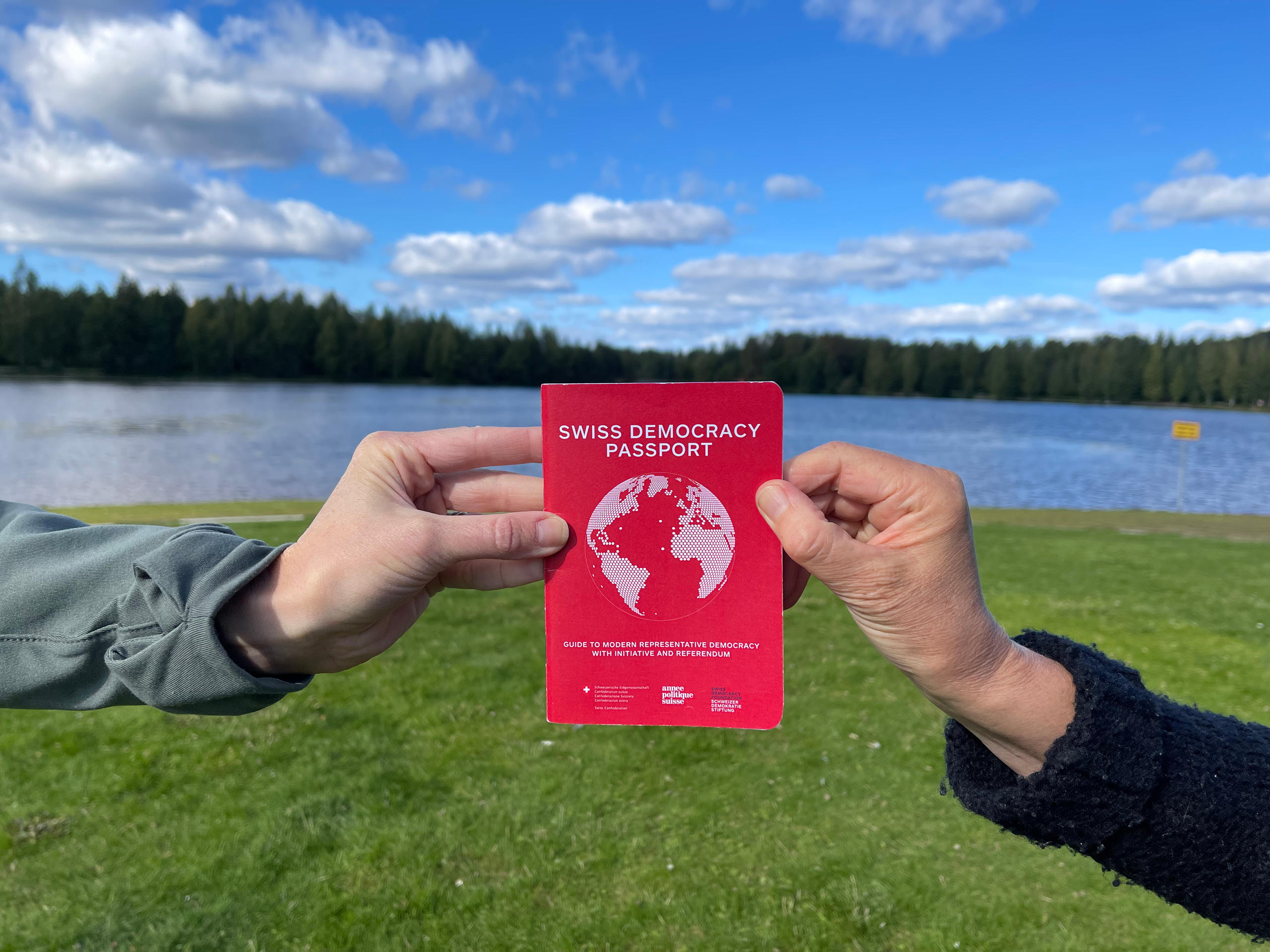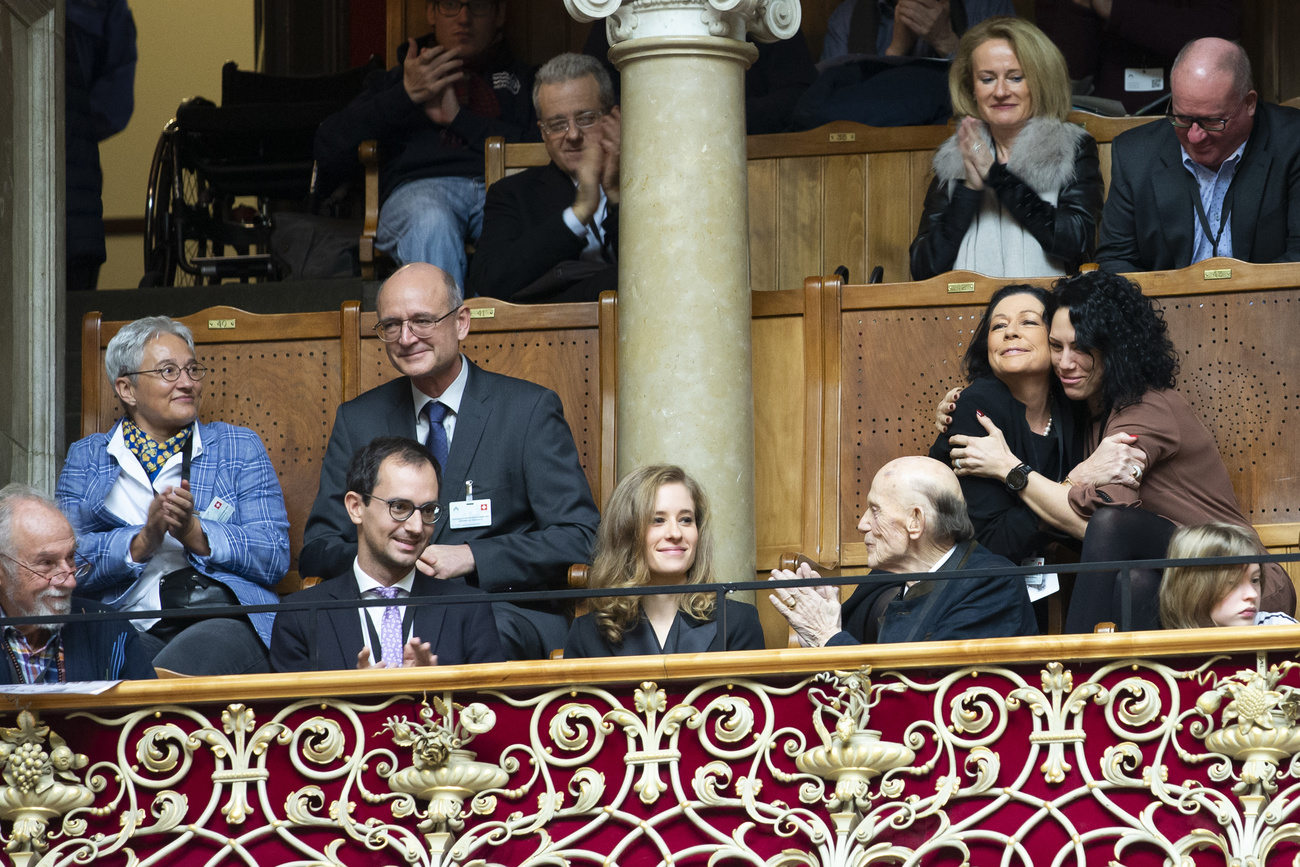Germany’s main political parties stay clear of nationwide referendums

As Germany heads for a general election, the country’s biggest political parties are turning their backs on direct democracy. Fringe parties are now the only ones still advocating for it.
For this year’s general election, the call to introduce nationwide referendums has completely vanished from the party platforms of both the Greens and the Social Democrats (SPD). The U-turn, from parties known for being advocates of direct democracy, is surprising, especially since proposals to expand the use of referendums in Germany were traditionally included in their manifestos.
Instead, almost all parties now support so-called citizens’ councils, randomly selected by drawing lots, to advise parliamentarians. This narrower use of direct democracy has gained popularity among these two parties and several others. Such councils are supposed to build bridges between the people and the government on selected issues in the periods between elections. However, they just have an advisory role and are not legally binding. The first nationwide assembly was held in 2020.
In its election manifestos of 1980, 1993 and 2002, the Green Party called for the introduction of more direct democratic rights. In its December 2020 manifesto, these demands have been dropped off the party’s agenda. The Green Party’s co-chairman Robert Habeck has recently announced that “referendums are polarising”. “They do not help promote discussion in a society, they divide it,” he observed. However, just a slim majority (51.5%) of the party’s members voted in favour of giving up efforts to achieve more direct democratic rights.

More
Citizens’ Juries – providing a neutral recommendation on voting issues
Currently, modern direct democracy at the national level in Germany is limited to popular referendums in just two cases: adopting a new constitution, as was envisaged after the reunification of the two Germanies, and regional votes in case of restructuring the states. The development to enlarge the tools of initiative and referendum are as old as German reunification in the early 1990s. Since then, all 30,000 German municipalities and all 16 federal states have introduced citizens’ initiatives and popular referendums. The way such popular votes are conducted however, differs greatly between the federal states.
Sven Giegold, member of the European Parliament for the Green Party is shocked by his party’s current stance. “It’s wrong to react to these populist attacks on today’s political institutions by adopting such a conservative attitude,” he says. Giegold talks about an “attitude of bourgeois middle-class parties”; a reference to right-wing parties that have always warned against nationwide referendums, claiming they would weaken the country’s representative democracy.
Christian Democrats critical of co-determination
The Christian Democratic Party (CDU), especially its head and outgoing Chancellor Angela Merkel, has always been very critical of the people’s right to co-determine legislation. The party’s manifesto does not even touch on the subject of direct democracy. The right to have the final say in the decision-making process on important issues on the ballot box is – not at least for controversial historic reasons – much less important to German citizens than the Swiss.
The Free Democratic Party (FDP) has also become more negative towards people being directly involved in the decision-making process. “Our parliament is responsible for discussing and deciding on important issues,” the party states bluntly in its April 2021 manifesto. Previously it was open to more direct democracy, and in 2004, the FDP even launched a campaign for a nationwide referendum on the EU constitution that was under discussion at the time.
Now, the FDP and other parties have also grown fond of citizens’ assemblies after tests on topics such as democracy, climate change and Germany’s role in the world.

More
‘Parliaments project a distorted image of people and their problems’
Brexit and Covid deterrents
It is interesting to note that the Green and Liberal parties are not the only ones to bid farewell to pro-referendum commitments. The SPD has also scrapped the word “referendum” from its election programme and now advocates for citizens’ assemblies. “We will look into the option of citizens’ assemblies and explore new ways of introducing people’s direct participation in federal decision-making,” it writes.
It is not that long ago that the Social Democrats proposed an amendment to German basic law that would allow for nationwide citizens’ initiatives and popular referendums. The first time it launched such a proposal was as part of government with the Greens in 2002, the second time was in 2013. Even though most parliamentarians voted in favour of the proposal, it did not gain the two-thirds majority required for such an amendment. The Christian Democrats and its Bavarian sister party, the CSU, would have had to be on board to push it through.
There are various reasons for the change of heart among the Green Party and the SPD. The Brexit referendum in the United Kingdom was a huge deterrent, while the sometimes vindictive and uninformed debates around the Covid-19 pandemic have further strained the relationship between the people and their political representatives. In Switzerland, for example, sceptics of the federal Covid-19 policies were able to collect sufficient signatures to initiate two referendums on the country’s coronavirus legislation this year alone.

More
Democracy in a passport
Gloomy outlook for nationwide referendums
Calls for nationwide referendums are currently only heard from parties on the left and right fringes of the political divide, namely the right-wing Alternative for Germany (AfD) and the left-wing The Left. However, their ideologies are completely different. The Left states clearly that direct democratic processes should complement parliamentary decision-making procedures – not replace them. The party is also not interested in the latest trend of citizens’ assemblies replacing referendums. “The proposals of the citizens’ councils will only be democratically legitimate once a referendum is launched,” states The Left’s parliamentary group, which is represented in the Bundestag (German Parliament).
The members of the anti-parliamentarian Alternative for Germany (AfD) have something totally different in mind. They call for an end to the “dreadful cronyism” in German politics, and as AfD member of parliament Roman Reusch put it, “The more the people can decide, the better.” For the AfD it matters hugely because introducing more direct democratic rights is at the top of the party’s agenda and election programme. Switzerland is often taken as an example; however, the procedures foreseen are not detailed. Additionally the right-wing party has not been a champion of using direct democracy where it already exists – on the local and regional levels.
The chances of nationwide referendums being introduced in Germany are slimmer than they have been for a long time.
Translated from German by Billi Bierling; edited by Virginie Mangin

In compliance with the JTI standards
More: SWI swissinfo.ch certified by the Journalism Trust Initiative









You can find an overview of ongoing debates with our journalists here . Please join us!
If you want to start a conversation about a topic raised in this article or want to report factual errors, email us at english@swissinfo.ch.